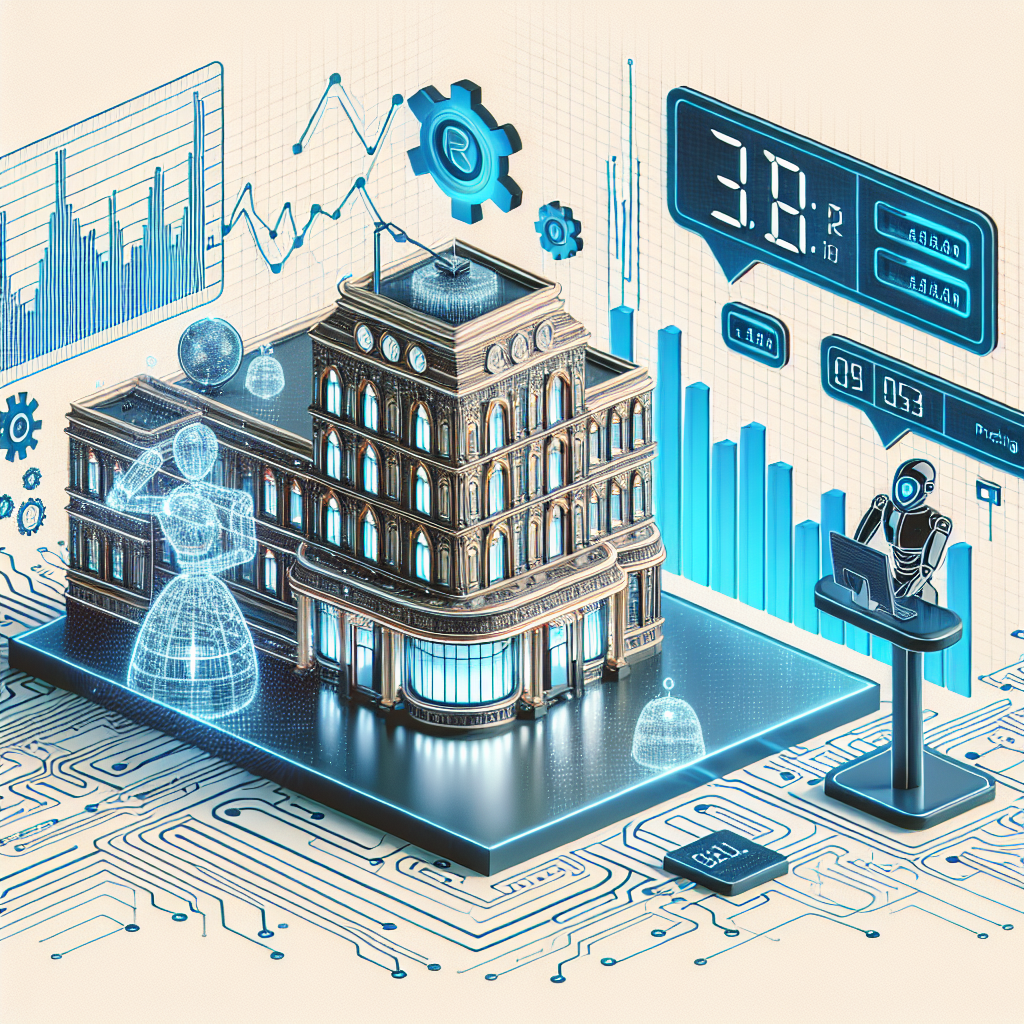Artificial intelligence (AI) has revolutionized many industries, and the hospitality sector is no exception. In particular, AI has proven to be a game-changer when it comes to dynamic pricing strategies in hotels. By leveraging AI solutions, hotels can optimize their pricing strategies in real-time, taking into account various factors such as demand, competition, seasonality, and guest preferences. This article will explore how AI is transforming the way hotels set prices and the benefits of using AI solutions for dynamic pricing strategies.
AI Solutions for Dynamic Pricing in Hotels
Dynamic pricing is the practice of adjusting prices in real-time based on changing market conditions. In the hotel industry, dynamic pricing is essential to maximize revenue and profitability. Traditionally, hotels have relied on manual processes and historical data to set prices, which can be time-consuming and ineffective. AI solutions offer a more efficient and accurate way to set prices dynamically, taking into account a wide range of factors to optimize revenue.
AI algorithms can analyze vast amounts of data in real-time to predict demand patterns, competitor pricing, and other market trends. By leveraging this data, hotels can adjust prices automatically to maximize revenue and occupancy rates. AI solutions can also take into account guest preferences, such as booking patterns, loyalty status, and past interactions with the hotel, to offer personalized pricing and promotions.
One of the key benefits of using AI for dynamic pricing is its ability to adapt to changing market conditions quickly. AI algorithms can analyze data in real-time and make pricing recommendations within seconds, allowing hotels to respond to changes in demand and competition instantly. This agility is crucial in a fast-paced industry like hospitality, where market conditions can change rapidly.
Another advantage of AI solutions for dynamic pricing is their ability to optimize pricing strategies based on a wide range of factors. Traditional pricing models often rely on a few key variables, such as occupancy rates and seasonality, to set prices. AI algorithms, on the other hand, can consider hundreds of variables simultaneously, including weather forecasts, local events, and social media trends, to make more accurate pricing decisions.
Benefits of AI Solutions for Dynamic Pricing in Hotels
There are several benefits to using AI solutions for dynamic pricing in hotels, including:
1. Increased Revenue: By optimizing pricing strategies in real-time, hotels can maximize revenue and profitability. AI algorithms can identify pricing opportunities and adjust prices accordingly to capture demand and increase occupancy rates.
2. Improved Guest Experience: AI solutions can offer personalized pricing and promotions based on guest preferences, leading to a more tailored and engaging experience for guests. By understanding guest behavior and preferences, hotels can offer targeted promotions that are more likely to convert.
3. Competitive Advantage: In a competitive market, hotels that leverage AI solutions for dynamic pricing have a competitive edge. By staying ahead of market trends and adjusting prices in real-time, hotels can attract more guests and outperform their competitors.
4. Cost Savings: AI solutions can automate pricing processes, reducing the need for manual intervention and saving time and resources. By streamlining pricing strategies, hotels can operate more efficiently and focus on other aspects of their business.
5. Data-Driven Decision Making: AI algorithms analyze vast amounts of data to make pricing recommendations, providing hotels with valuable insights into market trends and guest behavior. By making data-driven decisions, hotels can optimize pricing strategies and improve overall performance.
Frequently Asked Questions
Q: How can AI solutions help hotels set prices dynamically?
A: AI solutions leverage data analytics and machine learning algorithms to analyze market trends, competitor pricing, and guest preferences in real-time. By processing this information, AI solutions can recommend optimal prices to maximize revenue and occupancy rates.
Q: What factors do AI algorithms consider when setting prices for hotels?
A: AI algorithms consider a wide range of factors, including demand patterns, competitor pricing, seasonality, weather forecasts, local events, and guest preferences. By analyzing these variables simultaneously, AI algorithms can make more accurate pricing decisions.
Q: How do AI solutions personalize pricing and promotions for guests?
A: AI solutions can analyze guest booking patterns, loyalty status, and past interactions with the hotel to offer personalized pricing and promotions. By understanding guest preferences, hotels can tailor offers to individual guests, increasing the likelihood of conversion.
Q: Are AI solutions cost-effective for hotels?
A: While implementing AI solutions may require an initial investment, the long-term benefits of increased revenue, improved guest experience, and cost savings can outweigh the costs. By optimizing pricing strategies and operating more efficiently, hotels can see a positive return on investment.
In conclusion, AI solutions are transforming the way hotels set prices dynamically, offering a more efficient and accurate way to optimize revenue and occupancy rates. By leveraging AI algorithms to analyze vast amounts of data in real-time, hotels can make more informed pricing decisions and stay ahead of market trends. The benefits of using AI solutions for dynamic pricing are clear, including increased revenue, improved guest experience, competitive advantage, cost savings, and data-driven decision-making. As the hospitality industry continues to evolve, AI solutions will play an increasingly important role in helping hotels maximize revenue and deliver exceptional guest experiences.

